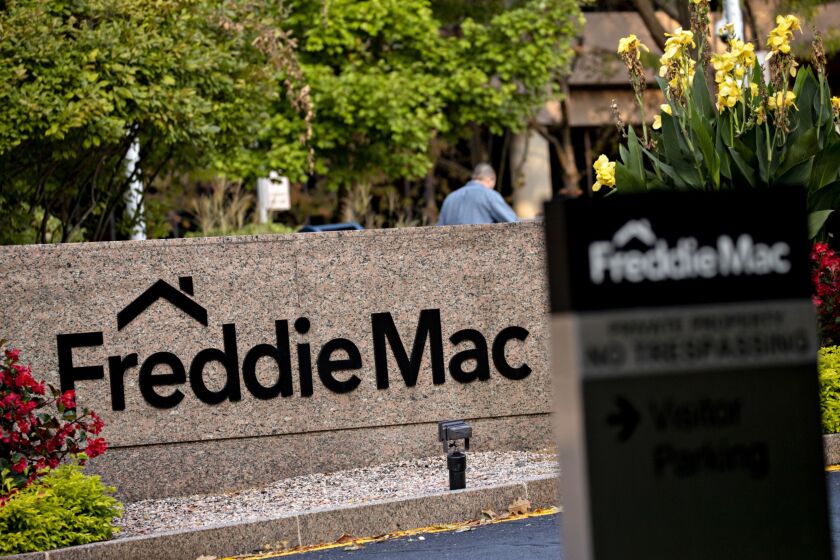The Federal Housing Administration said in its annual actuarial report that the capital reserve ratio on its mutual mortgage insurance fund increased to 6.10% in fiscal year 2020, up from 4.84% a year earlier.
One segment of the market, at least, has proved more resilient than many feared early on in the crisis.
Forecasts about the pandemic's impact on the mortgage market have grown less dire after forbearance requests by homeowners nearly leveled off in the first half of May.
As special IG for the Treasury’s allocation of $500 billion in aid, Brian Miller could look into funding for Fed credit facilities. But Democrats on the Senate Banking Committee questioned his independence.
The Federal Housing Administration has provided struggling homeowners with payment flexibility and explored other measures. At the same time, the agency is mindful of protecting itself against downside risks.
Efforts to calm lenders’ fears about coronavirus-related forbearance may not offset tightening standards, and the FHA is less likely to boost volume than it was during the financial crisis.
Ginnie Mae and the FHA provided temporary liquidity relief for mortgage servicers bracing for higher delinquencies, but the industry continues to pressure Treasury and the Fed to provide more comprehensive support.
The government is cushioning the impact of the coronavirus on consumers, but independent mortgage bankers need funding to deal with increased levels of servicing advances because of forbearances.
The Department of Housing and Urban Development's 60-day foreclosure halt for Federal Housing Administration borrowers is too short to help reverse mortgage borrowers, a letter from consumer groups stated.
There was a nearly 30% week-to-week decline in loan applications as Americans reacted to the uncertainty, both economic and medical, from the spread of COVID-19, according to the Mortgage Bankers Association.







![“We want to make sure that our cash [inflows] exceed our cash outflows, so again, we’re looking at a lot of different things, and premiums being one of them, but there are other things that we’re considering as well," FHA Commissioner Brian Montgomery said.](https://arizent.brightspotcdn.com/dims4/default/4ae6de9/2147483647/strip/true/crop/1260x709+0+0/resize/840x473!/quality/90/?url=https%3A%2F%2Fsource-media-brightspot.s3.us-east-1.amazonaws.com%2Fc0%2Fd2%2F5bd96a5a4a9eb632ac3bfd4b8da9%2Fmontgomery-brian-fha.png)







